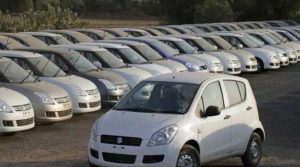Insurance regulator Irdai had in June this year decided to withdraw long-term third party insurance cover of three/five years for new cars and two-wheelers. The decision, that came into effect from August 1, 2020, and making insurance cover more affordable for vehicle owners.

The Insurance Regulatory and Development Authority of India (Irdai) withdrew the scheme in view of concerns expressed by stakeholders over the implementation of long-term insurance cover package which was introduced in September 2018 in wake of the decision of the Supreme Court in a matter.
Pursuant to the decision of Supreme Court in a matter, Irdai had directed all general insurers (except the standalone health insurers and specialised insurers), to offer only three-year Motor Third Party insurance policies for new cars and five year Motor Third Party insurance policies for new two-wheelers with effect from September 1, 2018.
The long-term package cover offering both Motor Third Party Insurance and Own Damage Insurance was introduced from September 2018.
With the introduction of the-long term covers, general insurers were asked to provide two options to choose from.
They were asked to either offer ”long term package offering both Motor Third Party Insurance and Own Damage Insurance” for three years or five years as the case may be” or ”a bundled cover with a three-year/five-year for third party component and a one-year term for the own damage”.
Irdai said that it reviewed the various options of long-term and annual motor insurance covers now being offered to the prospects/policyholders pertaining to own damage.
Regarding the concerns on long-term package, Irdai said actuarial pricing has been a challenge for insurers for long-term own damage cover.
Also, “distribution of package policies has its challenges due to affordability factors for a large section of owners of vehicles,” it said.
It also noted that the possibility of forced selling due to financial interest/being linked to loans is high and in case of deficiency in services, policyholders would be saddled with a long-term product with no flexibility to change options.